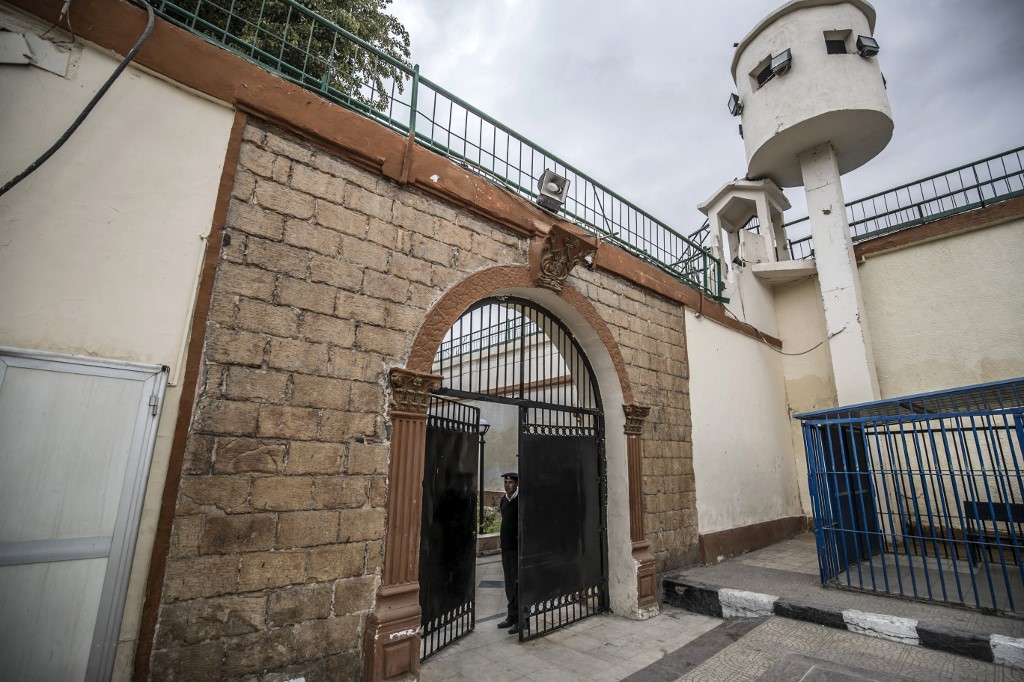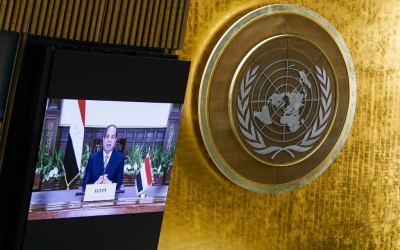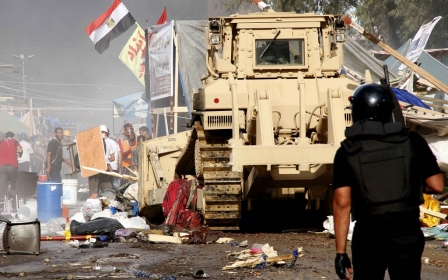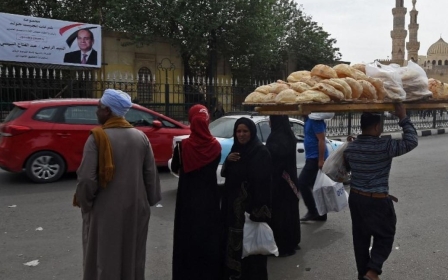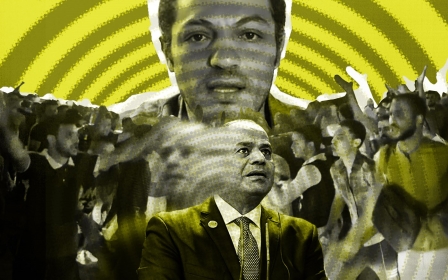Egypt: Mega prisons deepen Sisi's dystopian system of repression
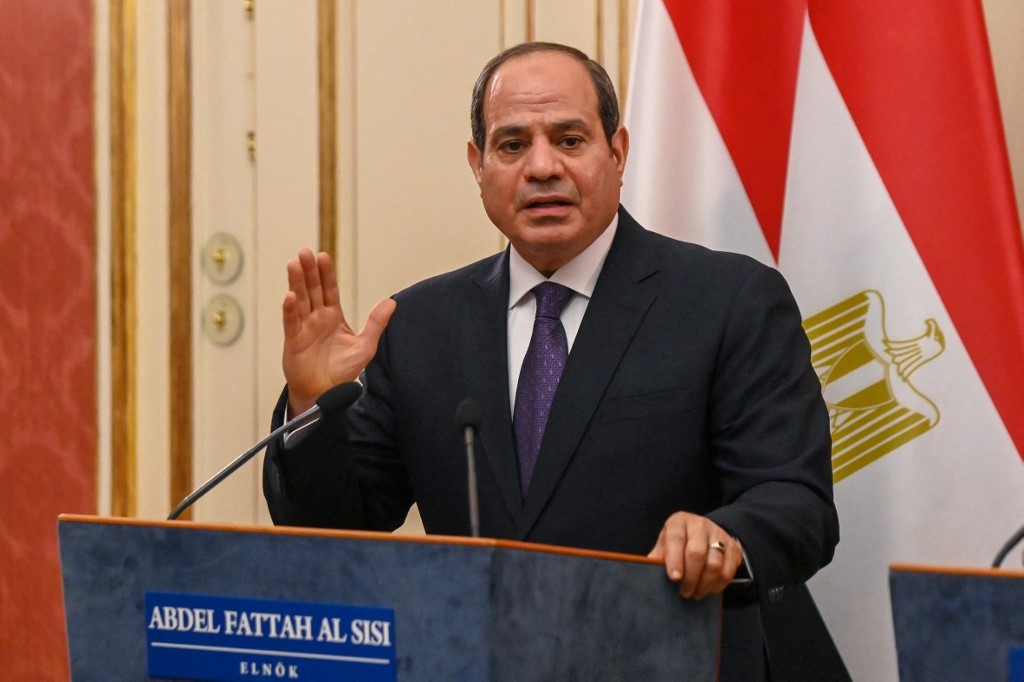
In September, calling in to a talk show, Egyptian President Abdel Fattah el-Sisi announced that the government would soon inaugurate a massive new prison complex. “We are bringing out a full American version,” he said. “Prisoners in the complex will serve their sentences in a humane way.”
This was to be the first of up to eight mega-prisons still to be built. The complex was indeed inaugurated last month to great fanfare, heralded as a transformation in the way that prisoners are treated, shifting the emphasis from punishment to rehabilitation.
The prison's isolation and self-sufficiency threaten to enhance the ability of Egyptian security forces to commit abuses away from the public eye
An accompanying propaganda campaign, complete with its own song, aimed to rebrand Egypt’s Prisons Authority as the “Social Protection Authority”. But a deeper look at the new prison’s structure, in conjunction with recent amendments to the country’s anti-terrorism and public protection laws, points to a more sinister intent: namely, a deeper institutionalisation of repression, and a possible expansion of the prison population.
The most striking features of the new prison complex are its size, design, isolation and self-sufficiency, none of which bode well for the prison population. The complex has been built on 219 hectares, making it the largest prison in Egypt’s history, with an estimated capacity of 34,000 prisoners, assuming there is no overcrowding. Its opening will allow the regime to shut down 12 prisons out of 78 nationwide.
If this is indeed just one of eight prisons, and each has a similar capacity, then the country’s total prison capacity could skyrocket to several hundred thousand. Currently, the total prison population is estimated to be 120,000, including 60,000 political prisoners and pretrial detainees - and as of last year, Egypt’s overcrowded prisons were reportedly exceeding their capacity by 300 percent. It would appear that the regime is now creating the physical infrastructure for a rapid increase in incarceration.
New MEE newsletter: Jerusalem Dispatch
Sign up to get the latest insights and analysis on Israel-Palestine, alongside Turkey Unpacked and other MEE newsletters
Abusive practices
At the same time, the new prison’s draconian structure points to the likely continuation of the regime’s abusive practices. Its design appears to include a large number of solitary confinement cells, a practice widespread in Egyptian prisons. The late President Mohamed Morsi was kept in solitary confinement from his arrest up to his death in 2019, in what the UN called a possible “state-sanctioned arbitrary killing”.
The complex also seems to have four sectors modelled after the notorious Scorpion Prison, which is infamous for the plethora of abuses committed there.
Finally, the prison’s isolation and self-sufficiency threaten to enhance the ability of Egyptian security forces to commit abuses away from the public eye. The prison is located in Wadi el-Natroun, in the desert, around 100km from Cairo.
The complex also contains courts and a national security headquarters, making it more difficult for the families of inmates to visit, while also increasing the social isolation of prisoners, who no longer need to be transported from their confinement to court hearings.
The new structure aims to ensure that mass prison breaks, of the type that occurred during the 2011 uprising, cannot be repeated, since the prison complex is in a remote area away from urban centres.
Repressing dissent
The opening of the new prison complex also coincides with recent amendments to the country’s anti-terrorism and public protection laws. Egypt’s anti-terrorism law already gave the state extensive powers to claim “exceptional measures” in the event of a terror threat, such as imposing curfews or evacuating certain areas. The new legislation expands the national security powers of Egypt’s president and military.
Activists and opposition figures have been targeted for years under Egypt’s anti-terrorism scheme, which gives a vague definition of terrorism that includes harming “national security and social harmony”. It also provides immunity from prosecution for security forces if they use lethal force in the line of duty, fuelling a spike in extrajudicial killings.
The less-discussed law to protect public and “vital entities” - initially passed in 2014 as a temporary measure, but now made permanent under a new amendment - gives the military the primary responsibility to protect public institutions and entities such as roads, bridges, power lines and government agencies. Offences under this law would fall under the jurisdiction of military courts.
These amendments will have significant consequences, essentially converting Egypt’s armed forces into a domestic security force whose main responsibility is to repress dissent and maintain the regime’s security. And by increasing the jurisdiction of military courts, mass social protests can more easily be repressed.
This, in combination with the mega prisons, signals the maturation of Sisi’s dystopian vision. We can expect the level of repression in Egypt to increase in the years ahead.
The views expressed in this article belong to the author and do not necessarily reflect the editorial policy of Middle East Eye.
Middle East Eye delivers independent and unrivalled coverage and analysis of the Middle East, North Africa and beyond. To learn more about republishing this content and the associated fees, please fill out this form. More about MEE can be found here.



